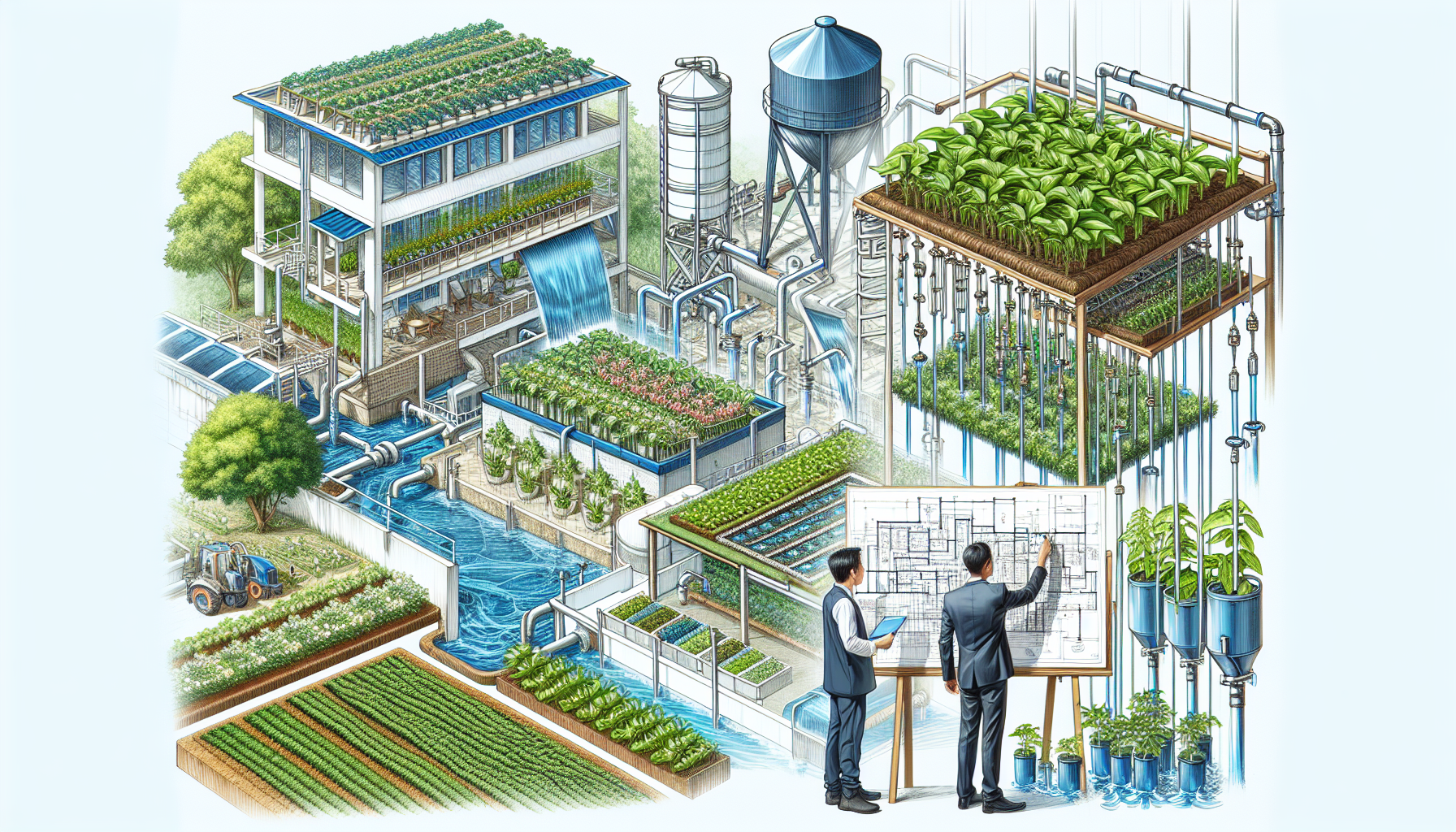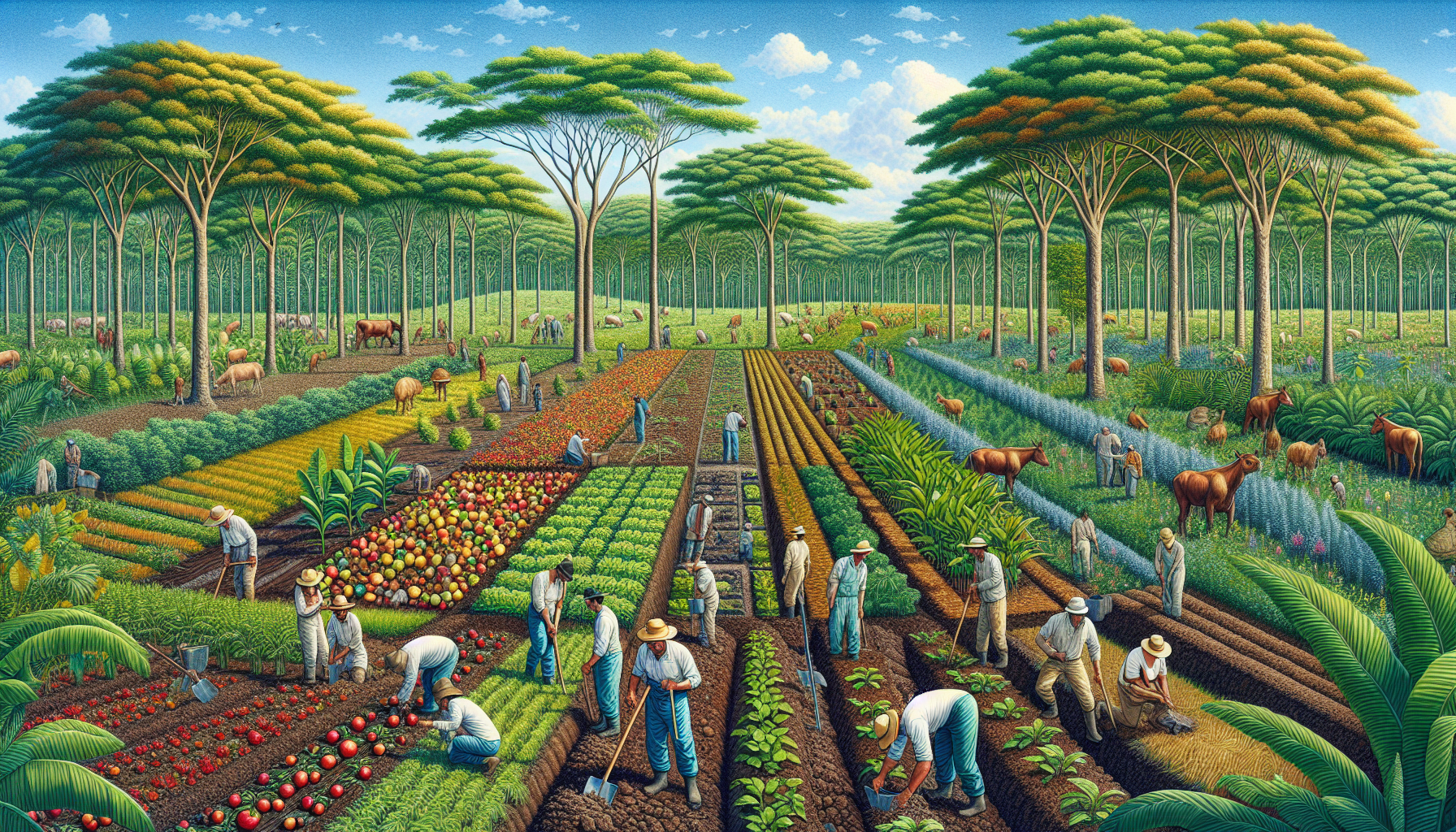Introduction
Sustainability in farming is crucial for preserving the environment while ensuring long-term agricultural productivity. In today’s world, where climate change and resource depletion threaten food security, adopting sustainable farming practices has become more important than ever. This blog post explores various methods and tools that can help farmers cultivate crops efficiently while minimizing their ecological footprint. By implementing these strategies, farmers can enhance soil health, conserve water, and reduce dependence on chemical inputs, ultimately contributing to a greener future.
“Sometimes, the simplest moments hold the deepest wisdom. Let your thoughts settle, and clarity will find you.”


Understanding Sustainable Farming Practices
Sustainable farming revolves around eco-friendly techniques that promote long-term soil fertility, biodiversity, and water conservation. One fundamental approach is crop rotation and diversification, which involves alternating crops each season to maintain soil nutrients and prevent pest infestations. For example, rotating legumes with grains enhances nitrogen levels in the soil, reducing the need for synthetic fertilizers.
Another key aspect is organic farming, which eliminates harmful pesticides and synthetic fertilizers in favor of compost, manure, and biopesticides. Organic farming not only improves soil structure but also reduces water contamination and enhances biodiversity by fostering beneficial organisms. Additionally, integrated pest management (IPM) is a sustainable method that uses natural predators and organic treatments to control pest populations without disrupting the ecosystem.

Innovative Water Management Techniques
Water is a critical resource in agriculture, and its efficient use is essential for sustainability. One effective method is drip irrigation, which delivers water directly to plant roots, significantly reducing wastage compared to traditional irrigation systems. Rainwater harvesting is another valuable technique, where farmers collect and store rainwater for irrigation, reducing reliance on groundwater.
Furthermore, mulching helps retain soil moisture by covering the soil surface with organic materials like straw or leaves. This not only conserves water but also suppresses weeds and enhances soil fertility. By integrating these water management techniques, farmers can optimize their water usage while promoting environmental conservation.

Leveraging Renewable Energy in Agriculture
Transitioning to renewable energy sources is an effective way to reduce the carbon footprint of farming operations. Solar-powered irrigation systems provide an eco-friendly alternative to diesel pumps, significantly cutting down greenhouse gas emissions. Similarly, wind turbines can generate electricity for farm operations, making farming more energy-efficient and cost-effective in the long run.

Additionally, biogas systems convert agricultural waste into renewable energy, offering a sustainable solution for managing farm residues while producing clean fuel. Implementing these renewable energy sources enables farmers to reduce reliance on fossil fuels and contribute to a more sustainable agricultural industry.
Agroforestry and Soil Health Enhancement
Agroforestry is a holistic approach that integrates trees and shrubs into farming landscapes, offering multiple benefits such as improved soil structure, enhanced biodiversity, and additional income sources. Trees act as natural windbreaks, reducing soil erosion and providing shade for crops and livestock. Moreover, their deep root systems help in retaining groundwater, improving soil moisture content.

To further enhance soil health, farmers can adopt cover cropping, where plants like clover or rye are grown between main crops to prevent soil erosion and improve nutrient availability. Minimal tillage is another effective technique that preserves soil organic matter and prevents disruption of microbial life. By focusing on soil health, farmers can ensure long-term productivity and sustainability.
Reducing Waste and Promoting Recycling in Agriculture
Minimizing waste and repurposing agricultural byproducts play a crucial role in sustainable farming. Crop residues can be converted into compost, enriching the soil with organic matter. Similarly, animal manure serves as a natural fertilizer, reducing the need for chemical inputs.
Farmers can also reduce plastic usage by opting for biodegradable packaging materials and reusing agricultural tools whenever possible. By integrating waste reduction and recycling strategies, farms can significantly cut down their environmental impact while improving operational efficiency.
The Role of Technology in Sustainable Farming
Modern technology has revolutionized agriculture, enabling farmers to make data-driven decisions that enhance sustainability. Precision agriculture, which utilizes GPS, sensors, and data analytics, allows farmers to optimize fertilizer and pesticide application, reducing wastage and environmental harm.
Drones and satellite imaging provide real-time insights into crop health, soil conditions, and water levels, helping farmers take proactive measures to improve yield quality. Additionally, automated irrigation systems ensure precise water distribution, minimizing excess usage and conserving resources.
By leveraging these technological advancements, farmers can adopt more efficient and eco-friendly farming methods, ensuring sustainability for future generations.
Wrapping Up with Key Insights
Sustainable farming is the future of agriculture, ensuring food security while protecting the environment. By adopting eco-friendly practices such as crop rotation, organic farming, efficient water management, and renewable energy integration, farmers can enhance productivity without depleting natural resources. Implementing waste reduction strategies and utilizing modern technology further strengthens sustainability efforts.
As the world becomes increasingly focused on environmental awareness, every effort toward sustainable farming makes a difference. By making thoughtful decisions now, farmers can ensure a prosperous agricultural future for generations. Adopting sustainable practices not only supports the planet but also boosts farm profitability and strengthens resilience against climate challenges.

Leave a Reply